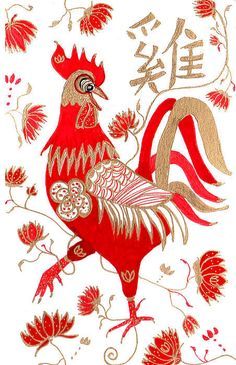 2017 is the Year of the Rooster.
2017 is the Year of the Rooster. For the occasion, the TSO played Chinese orchestral music (of course), under the baton of guest conductor Long Yu. And the concert served to illustrate the fact that “Chinese orchestral music” is a multifaceted rubric, held together by the combining of European and Asian approaches to creating music. Indeed, the program exposed both the benefits and the pitfalls of joining East and West in this way.
To my ears, one of the big pitfalls is the tendency for some Chinese composers to conflate simple melodies with big unison gestures. Traditional Chinese music isn’t layered in the way Western music is – yet the simultaneous interplay of different musical ideas is what a Western orchestra is designed to achieve. Committing all the players in an orchestra to a mono-layered idea is impoverishing and weak, no matter how many fortissimos the composer adds to the page.
On the other hand, Chinese music tends to be rich and subtle in timbre – and when Chinese composers (and composers of Chinese descent) bring this kind of thinking about colour to the resources of a Western orchestra the results can be fascinating. Most successful in this regard was Vincent Ho’s Rejuvenation: A Taoist Journey, for pipa, narrator and orchestra. The soloist was Wu Man, the “brand name” in pipa virtuosity. The narrator was a man known as “Dashan” in China, where he seems to enjoy rock-star celebrity. His real name is Mark Rowswell, and he’s a very Caucasian Canadian.
Ho’s goals for his new work were ambitious. “Playing and listening to such music,” he wrote, “is an act of contemplation and a process of self-purification that would eventually lead to spiritual enlightenment.” Personally speaking, Dashan’s no-doubt brilliant oration in Mandarin Chinese didn’t lead me to much of anything. But I very much enjoyed the artful way Ho intertwined the pipa with orchestral textures, Wu Man’s solos floating like a dragonfly above sustained, slow-moving passages in the strings.
I wish I could speak as highly of the other piece for soloist and orchestra on the program. Qigang Chen’s Joie Eternelle, for trumpet and orchestra was a display vehicle for trumpeter Alison Balsom. Chen’s extensive use of muting was novel, but, disappointingly, the extended passage-work he wrote for the trumpet sounded just like that – passage work.
There was one other piece on the program: Launch!, by Chinese-Canadian composer Vivian Fung. This was one of the short “Sesquies” that the TSO is presenting throughout 2017. But here, brevity was not much of a virtue. The two-minute piece was a furtive flurry of sound, over almost before it began.
The practice of Chinese composers writing for a Western orchestra is a relatively new phenomenon, dating back about a century. It’s still a trial-and-error experiment: sometimes the experiments work out well, and sometimes they don’t.
© Colin Eatock 2017
 RSS Feed
RSS Feed

